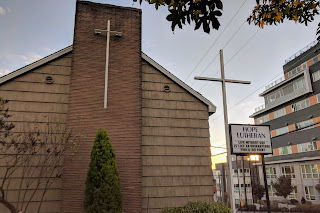I do like the calendar this year.
The four Sundays before Christmas are the Sundays of Advent, preparing to celebrate Emmanuel -- God entering the world in the form of a baby boy. Often, the first Sunday of Advent will be the Sunday of the long Thanksgiving weekend, so there’s no breathing space between these two holidays (really, Holy Days). But this is one of those years when the Sundays of Advent start a whole week after Thanksgiving weekend. Even better, they all fall in December (so every Advent calendar requires less explanation).
The four Sundays before Christmas are the Sundays of Advent, preparing to celebrate Emmanuel -- God entering the world in the form of a baby boy. Often, the first Sunday of Advent will be the Sunday of the long Thanksgiving weekend, so there’s no breathing space between these two holidays (really, Holy Days). But this is one of those years when the Sundays of Advent start a whole week after Thanksgiving weekend. Even better, they all fall in December (so every Advent calendar requires less explanation).
Pastor Peter Mueller made a point on Sunday morning at Hope Lutheran -- this was an opportunity to take a deeper dive into Thanksgiving.
Not that Christmas went unmentioned in the early worship service. A couple of different opportunities for decorating the church were announced. There was another announcement about the church’s Giving Tree in the lobby. People were encouraged to take a tag with a child or senior citizen’s gift wishes (next Sunday was the last chance to get a name). There was yet another Christmas announcement (though it wasn’t the final announcement) about a TV program, The Great Christmas Light Fight, on ABC Monday night. It’s a reality show featuring families who elaborately decorate their homes for Christmas. The episode was filmed last year at the home of a family from the church (and other folks from the church were filmed as well).
But the big announcement wasn’t about Yuletide. Julie Hill had been scheduled to speak that morning about an all-volunteer, nonprofit ministry, but she was sick and couldn’t come. So Erin, a woman from the church, came forward with a brief announcement about The Living Water Project, which seeks to demonstrate God’s love by funding clean water projects. The most exciting part of Erin’s announcement was that a group from the church was planning to work in Central America or Africa, helping a church provide clean water for their community. I love when churches do this kind of thing.
The Scripture for the day was a very Thanksgivingy passage, Luke 17: 11 - 19. It’s the story of the ten lepers who went to see Jesus. Jesus healed them all, but only one, a Samaritan, returns to thank Him. With the title “Being Mindful of Our Blessings,” Pastor Mueller focused on our need for gratitude. “It is easy for us to forget the fine art of giving thanks to God.”
He proposed that one of the obstacles to gratefulness is our rushed lifestyle. He quoted Dallas Willard’s injunction, “Ruthlessly eliminate hurry from your life.” This is perhaps even more important at this time of year when holiday obligations can make us more hurried than ever. If we slow down, we can be more mindful of our blessings.
Pastor Mueller suggested four steps to pursue a life of gratitude:
Slow down
Live mindfully
Pursue perspective
Thank God!
He suggested thanking God to a ridiculous extent. He suggested thanking God for the fact that you don’t just have mustard in your fridge, you have three kinds of mustard. Thank God for that, and for all the people that make mustard possible. (I do have an affinity for mustard.)
In the pastor’s prayer, he thanked God for the truly important things. “Thank you, God, for the opportunities to share your love in this community and around the world.” I’m thankful for this time (before Christmas), for Hope Lutheran, and for God’s work in this congregation.























































